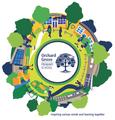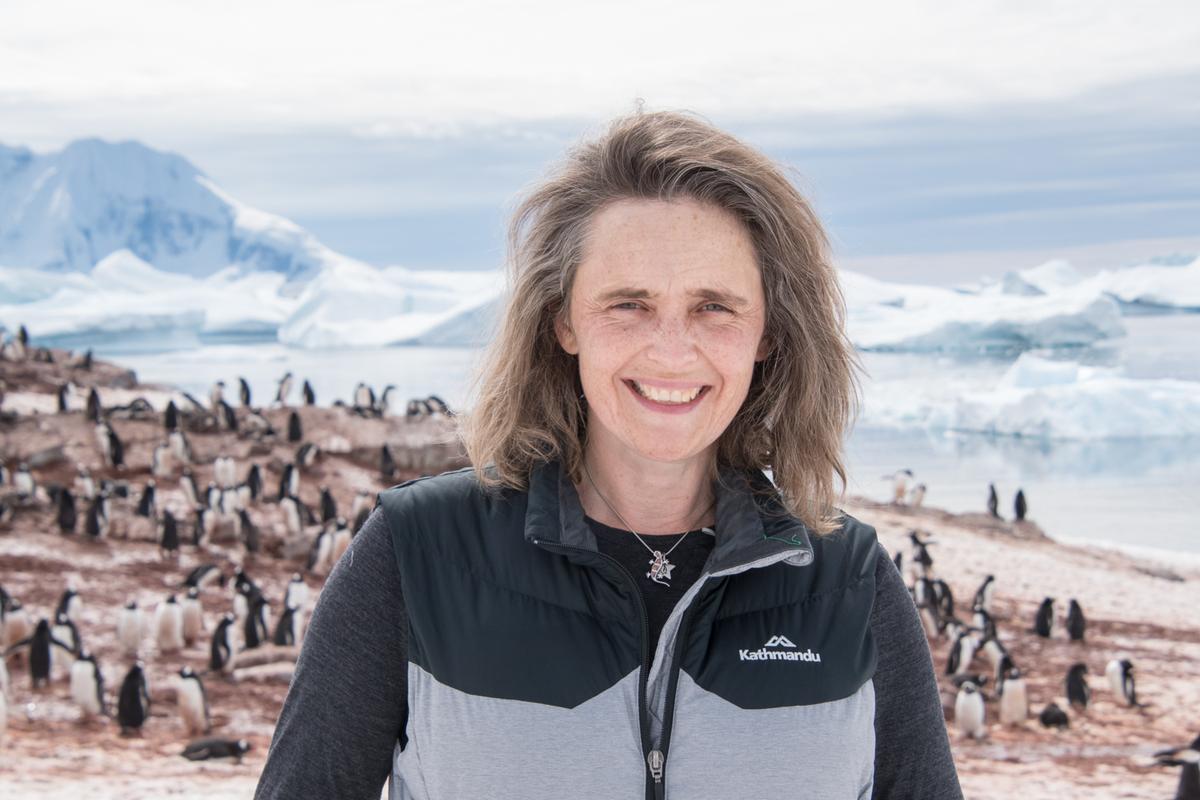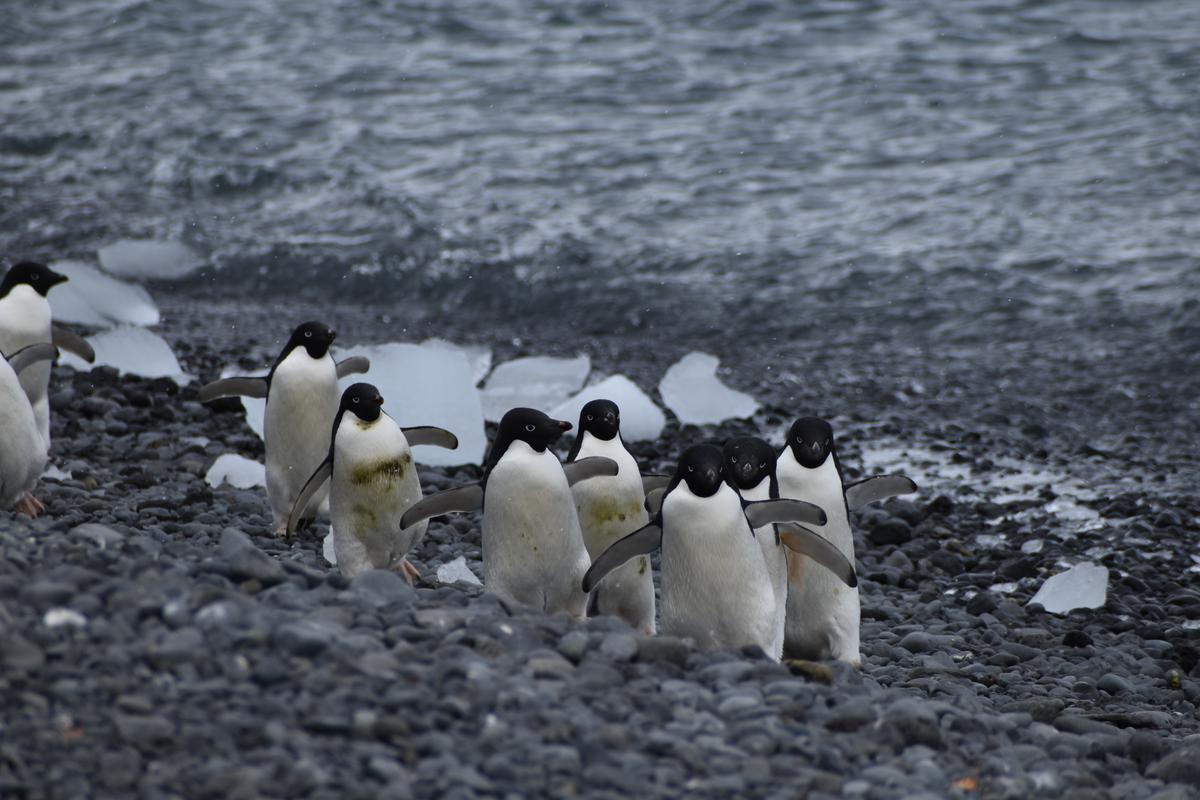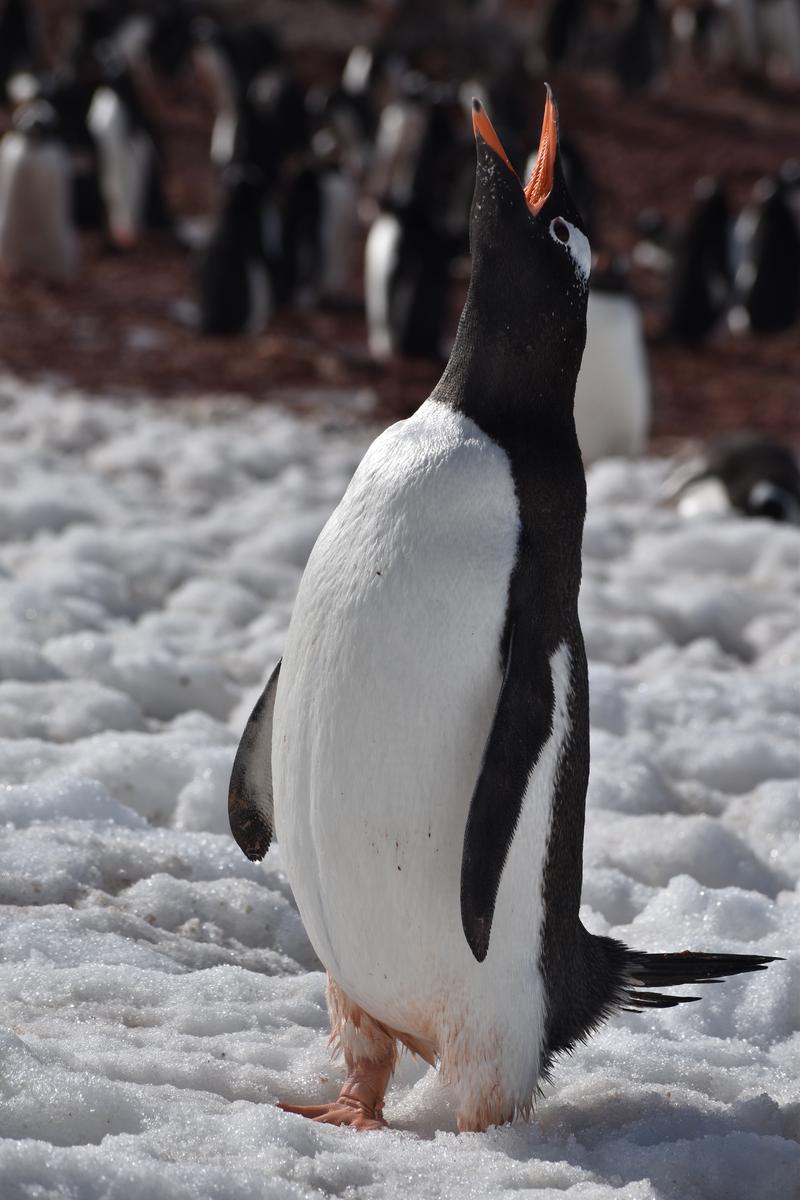Year Three News

The Year Three classes had the good fortune to participate in their first online incursion this week, receiving a visit from a member of our parent community, Dr Jen Martin. Dr Martin is an ecologist and spoke to us about her involvement at the end of last year in Homeward Bound, an international leadership program for women in science. This was the largest all-woman expedition to Antarctica, in which she was one of twelve teachers on board.
Dr Martin showed us photos and videos of her visit that highlighted what a beautiful place Antarctica is, with a focus on the different species of penguins, seals and whales that she saw there (which was certainly a highlight for our students).
The students had many questions that they wanted to ask. Here are a selection of those questions, along with Dr Martin's answers. They're well worth reading, as they give us a first-hand account of what is happening in Antarctica from someone who knows why it's happening and what we can do to change it.
Harper: What places have you travelled to for study?
JM: Most of my work has been done in Australia. I've worked a lot in Victoria, also a lot in North Queensland and the top of the Northern Territory, and right up the top of Western Australia in an area called the Kimberley. I haven't done much work overseas, so this is probably one of the few places I've been workwise and I feel very lucky that is was Antarctica that I got to go for work.
Josh A.: When did your career start?
JM: I started off in primary school and high school loving animals, and when I went to uni I decided studying animals was what I wanted to do. I spent many years studying animals, particularly possums, trying to understand them, wanting to conserve them. In the last ten years or so my career's changed a bit. I thought the main reason we weren't doing better at looking after our planet was not because we didn't have the scientific knowledge, but because we weren't communicating it properly to the people who needed to hear it – from the politicians, through to people like us who need to make good decisions about how we live on the planet. My job now is teaching scientists how to be better communicators - how to give talks, go on the radio, how to write for different people, how to talk to children - so I love my job, because I feel like that's really making a difference to the world.
Cody: What caused you to be interested in ecology?
JM: I grew up loving animals. In the one hour that we're allowed out now, my family goes to the park and we love looking at the trees, we love listening to the birds...we're just so lucky to live in a suburb that has lots of nature, and I spent my childhood realising how important nature was to me, so that turned into wanting to study it and wanting to understand it better. I think it's just what I've always loved. I feel very lucky I've got to study and work doing something I love.
Ruby: How did you become a scientist?
JM: Lots of years of study at university! At high school I studied things like chemistry, biology and maths, and then I went to university and did a science degree, and then I started doing research. The biggest part of my qualification was doing what's called a PhD, which is why I have the name "Doctor" in front of my name. I'm not a medical doctor; I can't fix you if you get sick, but it means I've spent many years studying something, and what I studied was the ecology of animals.
Christopher: What is your favourite biome?
JM: That's such a hard one! I think I have to say Antarctica, even though I only got to go there for such a short amount of time. I just felt so lucky to see the animals with my own eyes. You might have watched documentaries, like I have, where you get to watch penguins or see whales, but standing there and experiencing it was magical. I spent a lot of time thinking about what I could do to try and protect Antarctica so it's still that beautiful when you are adults and you might get to go there.
Ava P.: Where did you live in Antarctica?
JM: We lived on a beautiful ship, the Hebridean Sky. Each day we got to go out and explore a different place. Each night the ship travelled while we tried to sleep and then, each day, we found ourselves in a new place and we got to see what that place looked like, what animals lived there. But we spent our whole time on that ship, so it's kind of like living in a hotel - it's warm, it's dry, there's food to eat, you have a bed...it was very nice. I also spent half of my days teaching so it wasn’t a complete holiday!
Darcy: Did you see any evidence of global warming?
JM: Yes, we did. We had a lot of Antarctic scientists with us and they talked about how the temperatures were warmer than they should have been – the Antarctic Peninsula is the seconnd-fastest warming place on Earth. They talked to us about the fact that a lot of the ice was melting, and some of those beautiful ice cliffs were breaking apart. We learned about how the populations of animals are changing; one of the types of penguin is doing fine, but another one's population is really declining. We got a lot of information that was really sad about how quickly Antarctica is changing and what it's going to mean for the whole planet as more and more of that ice starts to melt. We all have to take things really seriously. If you think about every time you can avoid using plastic, don't use plastic. Every time you can walk to school or ride your bike to school, or wherever else you're going...the less we can use our cars, the better. Every time we can turn off a light switch and not waste power. Every little thing that you guys do can help to preserve a place like Antarctica. I want to know that, in twenty or thirty years, some of you are Antarctic scientists and you're going there studying Antarctica and it's still as beautiful as it is now because, if we don't make changes, a lot of that ice is going to melt, which is not what we want to have happen.




